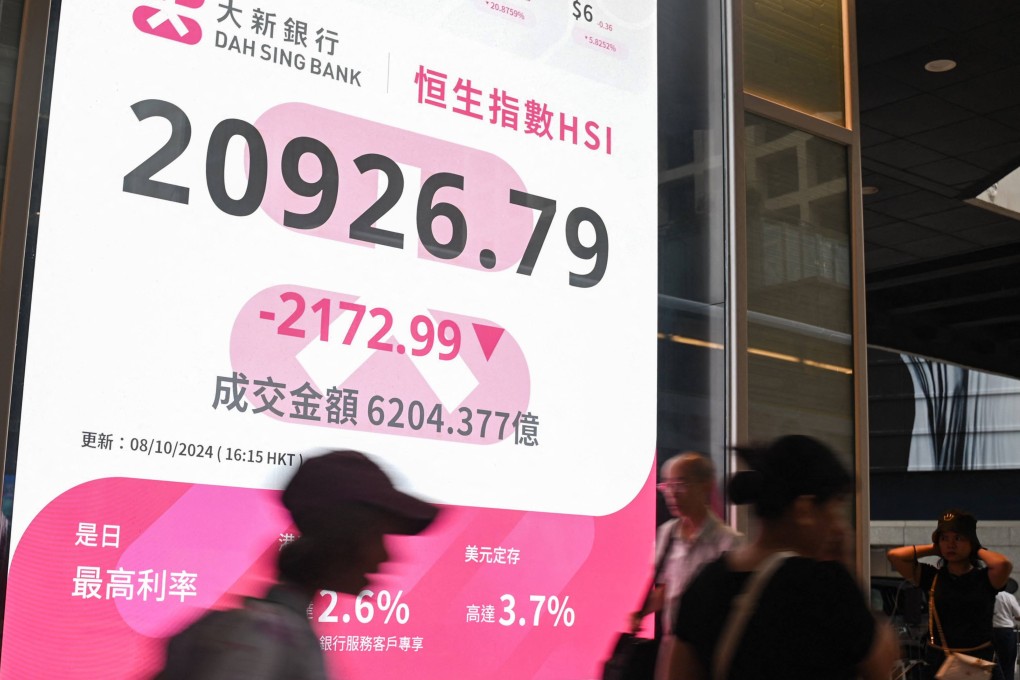Advertisement
Macroscope | 3 reasons investors should be cautious on China’s stimulus surge
While there are reasons for optimism with the news coming out of the Fed and Beijing, the case for caution is much stronger
Reading Time:3 minutes
Why you can trust SCMP
1

When the third quarter of this year came to an end last week, the benchmark S&P 500 equity index stood at an all-time high, having closed at a record level more than 40 times in 2024. Hong Kong’s main equity gauge, on the other hand, was a staggering 36 per cent below its record high in January 2018.
Yet it is what happened in the third quarter itself that grabbed headlines. While the S&P 500 returned 5.9 per cent, the Hang Seng Index gained 21.7 per cent in local currency terms, making it the world’s best-performing major financial asset, according to data from Deutsche Bank. In September alone, the Hang Seng returned 18.3 per cent, the top performer among the major financial assets.
In the last three weeks of September, the momentum in markets shifted dramatically in Asia’s favour. The sweeping stimulus measures announced by Beijing in the last week of September, which HSBC analysts described as “a sea change in mentality by policymakers, especially China’s central bank”, sparked a spectacular rally in Chinese and Hong Kong shares.
The impact of the package on market sentiment was amplified because investors have been extremely bearish on China since 2021. In a report on October 5, Goldman Sachs pointed to the “starting conditions of an oversold, undervalued and under-positioned market backdrop”.
That China’s aggressive stimulus measures were announced soon after the US Federal Reserve began its monetary easing campaign with a larger-than-expected cut in interest rates despite relatively strong growth has convinced some analysts that the conditions for a sustained rally in emerging market equities are in place. JPMorgan notes that “Fed easing and China stimulus are reviving hopes for a late-cycle reflation trade.”
There are certainly grounds for optimism. Few would have predicted a month ago that Beijing would be talking about “countercyclical fiscal policies” and that its response to the slowdown would be coordinated and more forceful. Chinese policymakers’ rhetoric has changed significantly, which suggests this time is different.
Advertisement
